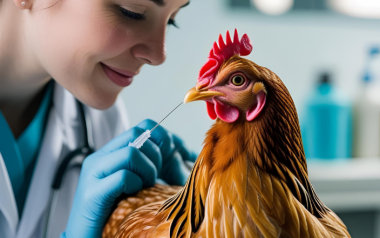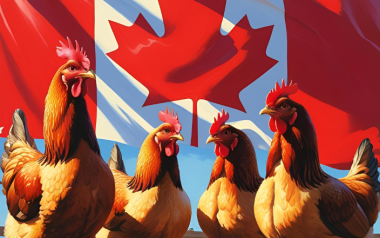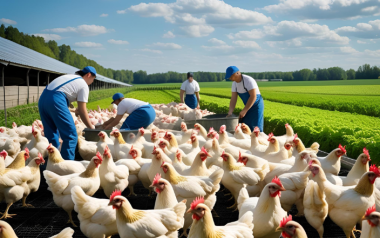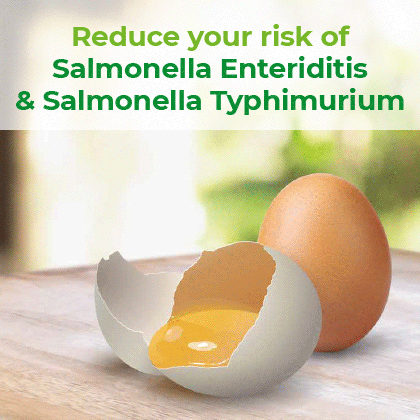Sources: Available upon request.
15 Feb 2024
Alphitobius diaperinus in poultry farming
Alphitobius diaperinus also known as litter beetle is considered as an endemic pest of worldwide distribution in poultry farms, since the mid 1950's, increasing over the years the severity of infestations.
Alphitobius diaperinus also known as litter beetle is considered as an endemic pest of worldwide distribution in poultry farms, since the mid 1950’s, increasing over the years the severity of infestations.
Beetle life cycle
Adult beetles can live between 3-12 months. After mating, a female beetle has the potential to produce 2,000 eggs, which are deposited in the cracks, crevices and insulation material of poultry houses, on poultry manure and under feed and water lines. These larvae subsequently hatch between 4-7 days and complete development to the adult stage between 40-100 days, depending on feed quality and temperature.
Beetles as disease vectors
Currently, Alphitobius diaperinus is a major problem in poultry production worldwide, as they are commonly found in high density in poultry farm litter, where they feed on feces and dead birds. Economic losses are very high since it causes reduction of feed intake, poor feed conversion rates and deterioration of early bird uniformity. The consumption of adult insects produces lesions in the digestive tract of birds due to their exoskeletons (Matías, 1992).
These beetles are vectors of bacteria, viruses, fungi, protozoa, and parasites, such as: Streptococcus spp, Bacillus subtilis, Corynebacterium spp, Staphylococcus aureus, Escherichia coli, Serratia marcescens, Salmonella typhimurium, Fusarium spp, Aspergillus flavus and Candida spp.
Among the viruses isolated from Alphitobius diaperinus have been found: infectious enzootic bursal disease (Gumboro), Marek’s disease, avian leukosis, Newcastle disease, rotavirus, smallpox, avian influenza, reovirus, etc. Oocysts of Eimeria spp (coccidia) and parasites (Choanotaenia spp and Raillietina spp), can survive in the litter and be ingested by the beetles, consequently contaminating the birds.
All these pathogens are transmitted when birds ingest previously infected adult beetles and their larvae.
Structural damage caused by beetles
When looking for suitable pupation sites, the larvae chew on styrofoam, fiberglass and polystyrene insulation panels in the walls and ceilings of farms, damaging the thermal insulation systems in the farms by perforating the insulation materials, impairing thermal comfort, which can be detrimental to the birds during development and production, causing weight reduction and reduction in egg production.
Beetle management and control
Biological control:
Alphitobius diaperinus has several natural enemies, including the pathogenic fungus Beauveria bassiana (Balsamo), with larvae being susceptible to this fungus. Diatomaceous earth is a potential alternative to control this beetle, depending on environmental factors such as temperature and humidity, insect behavior and litter substrate.
Chemical control:
Chemical insecticides with short residual effect are commonly used. Several carbamate- and phosphate-based insecticide formulations are registered for use against Alphitobius diaperinus, including wettable dusts, liquids and baits. Several pyrethroids are also currently registered and have been used as treatments for control. There are products that can be easily sprayed on surfaces, cracks, walls, ceilings, insulating materials, support beams inside and outside poultry facilities.
It is recommended to use a combination of adulticides and larvacides during the preparation of the poultry house and before the entry of the new flock, to break the biological cycles of the beetles and have complete control over their reproductive cycle. In this way, in a period of 6 to 9 months, a completely controlled beetle population will be achieved, thus avoiding as much as possible the structural, sanitary, and natural damages generated by the pest.







































